Page 11 of 67
Applying online parental guided self-help family-based treatment for adolescent anorexia nervosa: A comparison to family-based treatment delivered by videoconferencing
Since the onset of the COVID-19 pandemic, rates of eating disorders have surged while access to treatment has declined. Although face-to-face therapies such as Family Based Therapy (FBT) have been delivered online, there has been little published about how well they work and what needs to be done differently in a virtual format. This paper by the […]
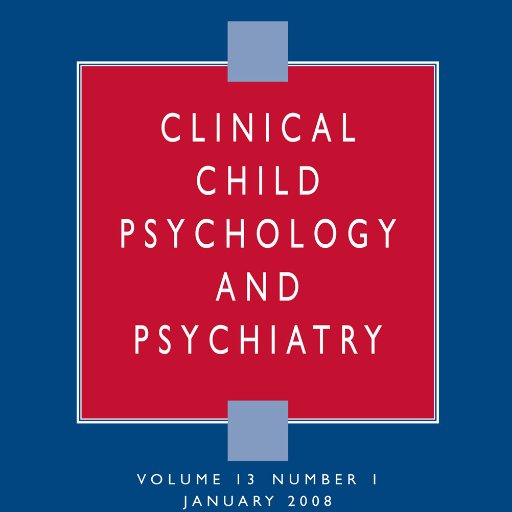
July 26, 2022
Connecting over the internet: Establishing the therapeutic alliance in an internet-based treatment for depressed adolescents
While therapy for adolescent depression may also be increasingly delivered online, little is known about what makes it work. This paper identifies hope, agency and togetherness as key values for success. Mortimer, R., Somerville, M. P., Mechler, J., Lindqvist, K., Leibovich, L., Guerrero-Tates, B., … & Midgley, N. (2022). Connecting over the internet: Establishing the therapeutic […]

Prevalence and Correlates of Suicide and Nonsuicidal Self-injury in Children
A Systematic Review and Meta-analysis This systematic review and meta-analysis of 58 studies found that the lifetime prevalence of suicidal ideation, suicide attempts, and nonsuicidal self-injury were 15.1%, 2.6%, and 6.2%, respectively, in community samples. The lifetime prevalence of suicide was 0.79 per 1 million children in the general population. Male sex, child maltreatment, attention-deficit/hyperactivity disorder, and depression were […]
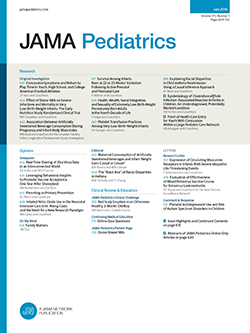
At a Crossroads—Reconsidering the Goals of Autism Early Behavioral Intervention From a Neurodiversity Perspective
There has been increasing controversy over early identification and support for autistic children from those who seek acceptance for neurodiversity. This well-written editorial encourages us not to throw the baby out with the bathwater. Dawson, G., Franz, L., & Brandsen, S. (2022). At a Crossroads—Reconsidering the Goals of Autism Early Behavioral Intervention From a Neurodiversity Perspective. JAMA […]

Eating Disorder Diagnoses in Children and Adolescents in Norway Before vs During the COVID-19 Pandemic
The results of this study from Norway echo those from Canada and the UK regarding the increase in incidence of young people with Anorexia Nervosa following the COVID-19 pandemic. Possible reasons are explored. Surén, P., Skirbekk, A. B., Torgersen, L., Bang, L., Godøy, A., & Hart, R. K. (2019). Eating Disorder Diagnoses in Children and Adolescents […]

Suicidal and nonsuicidal self-harming thoughts and behaviors in clinically referred children and adolescents with gender dysphoria
This study found that suicidal and non-suicidal self-harm were more common among transgender and gender non-conforming youth, highlighting the need for greater vigilance with these groups. Hartig, A., Voss, C., Herrmann, L., Fahrenkrug, S., Bindt, C., & Becker-Hebly, I. (2022). Suicidal and nonsuicidal self-harming thoughts and behaviors in clinically referred children and adolescents with gender […]

Psychiatric Outcomes, Functioning, and Participation in Extremely Low Gestational Age Newborns at Age 15 Years
This long-term follow-up study from the US found that young people who had been born extremely prematurely were at greater risk of the most common mental health issues that affect all young people, namely anxiety disorders, ADHD and depression. Greater surveillance of this group would be valuable. Frazier, J. A., Cochran, D., Kim, S., Jalnapurkar, I., […]
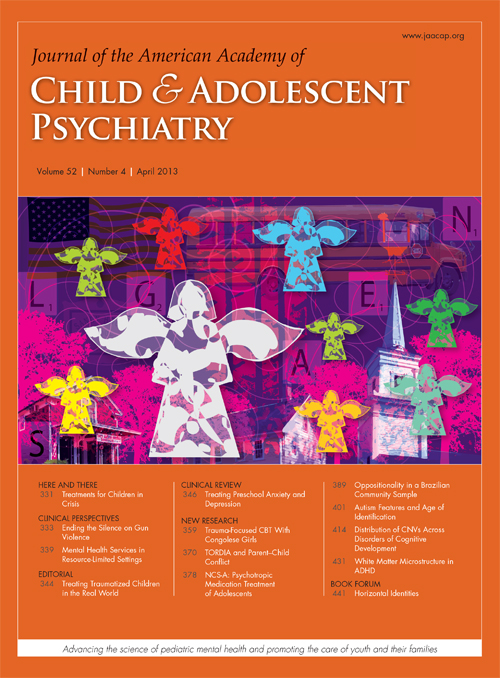
Prenatal caffeine exposure: association with neurodevelopmental outcomes in 9- to 11-year-old children
Is caffeine during pregnancy as bad as alcohol? This study using data from the Adolescent Brain and Cognitive Development (ABCD) study that included over 11,000 children aged 9-11 years found that higher levels of prenatal caffeine exposure were associated with greater rates of externalizing problems in children. Zhang, R., Manza, P., & Volkow, N. D. (2022). […]
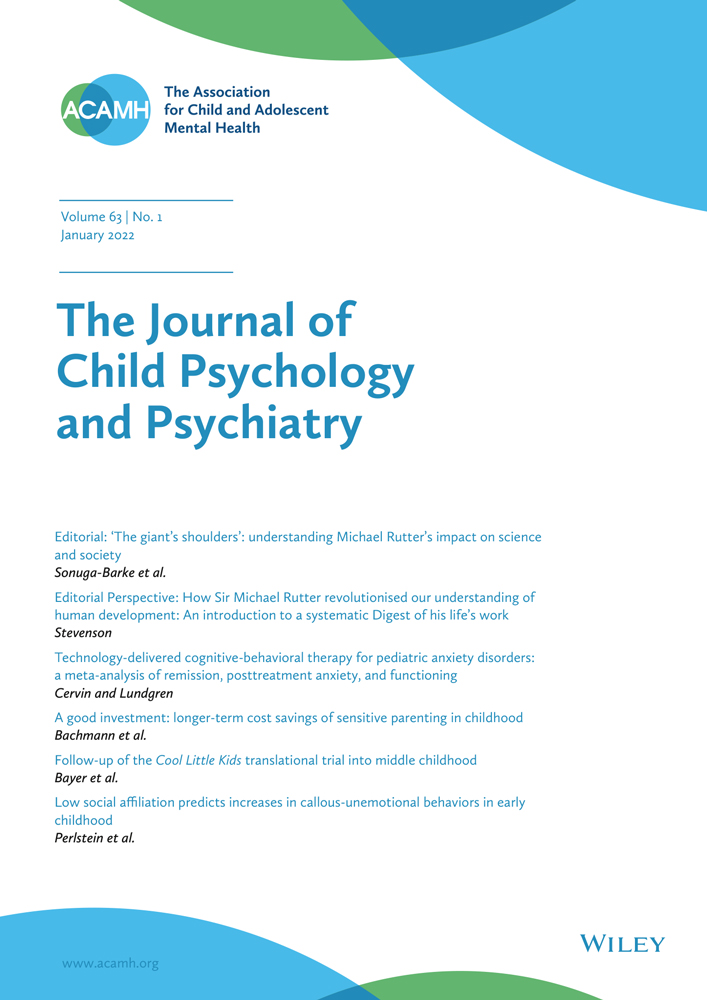
June 8, 2022
Data Divide—Disentangling the Role of the COVID-19 Pandemic on Child Mental Health and Well-being
Was the COVID-19 pandemic good or bad for children’s mental health. This well-written editorial encapsulates the current dilemma facing researchers, clinicians and policymakers and encourages a more sophisticated stance. Korczak DJ, Madigan S, Vaillancourt T. Data Divide—Disentangling the Role of the COVID-19 Pandemic on Child Mental Health and Well-being. JAMA Pediatr. Published online April 25, 2022. doi:10.1001/jamapediatrics.2022.0791 https://jamanetwork.com/journals/jamapediatrics/fullarticle/2791540?guestAccessKey=a8f489ad-61f2-4a65-b06c-a89e10afb01b&utm_source=silverchair&utm_medium=email&utm_campaign=article_alert-jamapediatrics&utm_content=olf&utm_term=042522

The context and development of the early relational health screen
Despite awareness of the importance of early relationships, there have been few ways to efficiently screen the quality of dyadic relationships. This study (also see related editorial in the same edition of the journal) demonstrates the validity, reliability and feasibility of the Early Relational Health Screen (ERHS), a tool that focuses on the early parent-child relationship […]
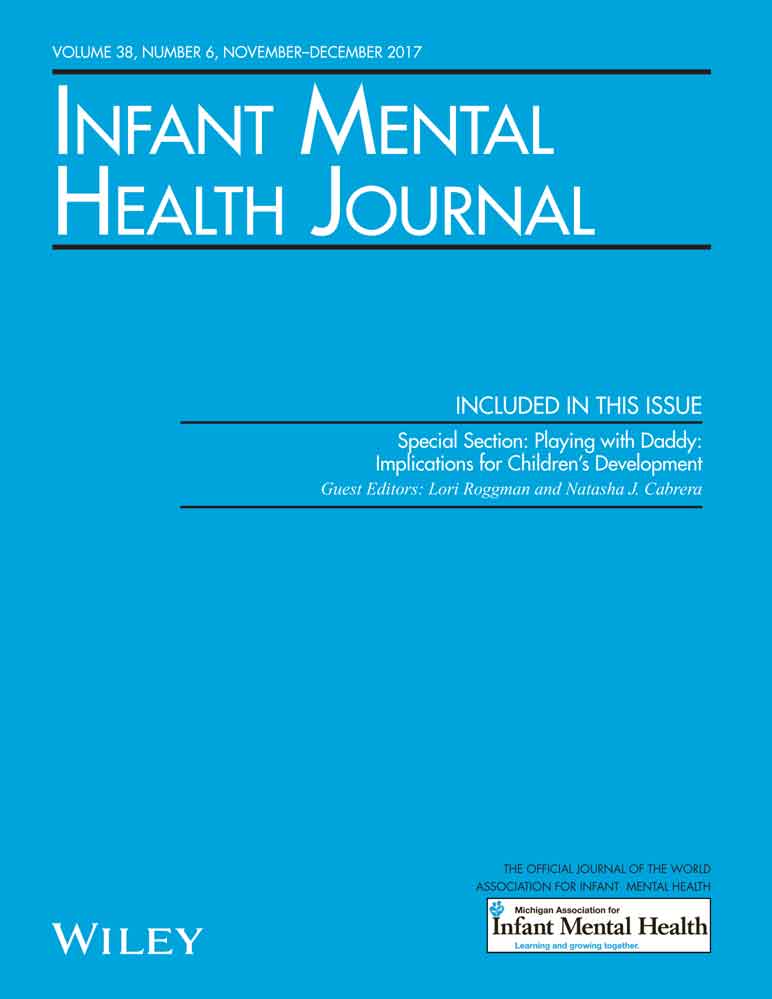
Page 11 of 67
Got an event to promote? Submit your event here

